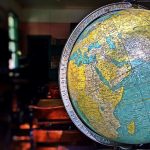Turkey – Politics
1. Administrative divisions
Turkey has a unitary structure in terms of administration and this aspect is one of the most important factors shaping the Turkish public administration. When three powers (executive, legislative and judiciary) are taken into account as the main functions of the state, local administrations have little power. Turkey does not have a federal system, and the provinces are subordinate to the central government in Ankara. Local administrations were established to provide services in place and the government is represented by the province governors and town governors . Other senior public officials are also appointed by the central government instead of the mayors or elected by constituents.Turkish municipalities have local legislative bodies for decision-making on municipal issues.
Within this unitary framework, Turkey is subdivided into 81 provinces for administrative purposes. Each province is divided into districts , for a total of 973 districts. Turkey is also subdivided into 7 regions and 21 subregions for geographic, demographic and economic purposes; this does not refer to an administrative division.
2. Politics
Between 1923 and 2018, Turkey was a parliamentary representative democracy. A presidential system was adopted by referendum in 2017; the new system came into effect with the presidential election in 2018 and gives the President complete control of the executive, including the power to issue decrees, appoint his own cabinet, draw up the budget, dissolve parliament by calling early elections, and make appointments to the bureaucracy and the courts.The office of prime minister has been abolished and its powers (together with those of the Cabinet) have been transferred to the president, who is both head of state and head of government, and is elected for a five-year term by popular vote.Recep Tayyip Erdoğan is the first directly-elected president.Turkey’s constitution governs the legal framework of the country. It sets out the main principles of government and establishes Turkey as a unitary centralised state.
Legislative power is vested in the unicameral parliament, called the Grand National Assembly of Turkey. The judiciary is nominally independent from the executive and the legislature, but the constitutional changes that came into effect with the referendums in 2007, 2010 and 2017 gave larger powers to the President and the ruling party for appointing or dismissing judges and prosecutors.The Constitutional Court is charged with ruling on the conformity of laws and decrees with the constitution. The Council of State is the tribunal of last resort for administrative cases, and the High Court of Appeals for all others.
Universal suffrage for both sexes has been applied throughout Turkey since 1933 and before most countries, and every Turkish citizen who has turned 18 years of age has the right to vote. There are 600 members of parliament who are elected for a four-year term by a party-list proportional representation system from 85 electoral districts.
3. Republic of Turkey
The Treaty of Lausanne of 24 July 1923, which superseded the Treaty of Sèvres, led to the international recognition of the sovereignty of the newly formed “Republic of Turkey” as the successor state of the Ottoman Empire, and the republic was officially proclaimed on 29 October 1923 in Ankara, the country’s new capital. Mustafa Kemal became the republic’s first President and subsequently introduced many reforms. The reforms aimed to transform the old religion-based and multi-communal Ottoman constitutional monarchy into a Turkish nation state that would be governed as a parliamentary republic under a secular constitution.
4. Law
The Constitution of the Republic of Turkey (Turkish: Türkiye Cumhuriyeti Anayasası), also known as the Constitution of 1982, is Turkey’s fundamental law. It establishes the organization of the government and sets out the principles and rules of the state’s conduct along with its responsibilities in regards to its citizens. The constitution also establishes the rights and responsibilities of the latter while setting the guidelines for the delegation and exercise of sovereignty that belongs to the Turkish people.




